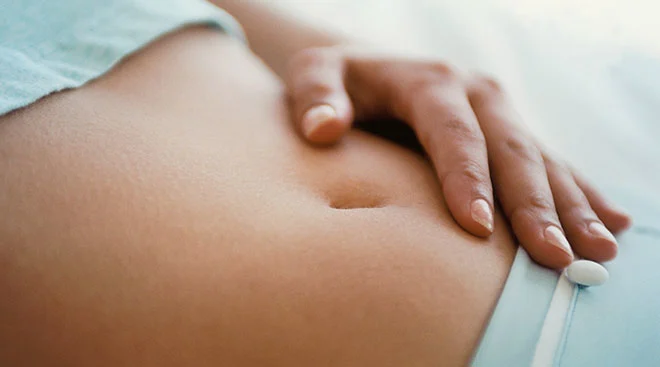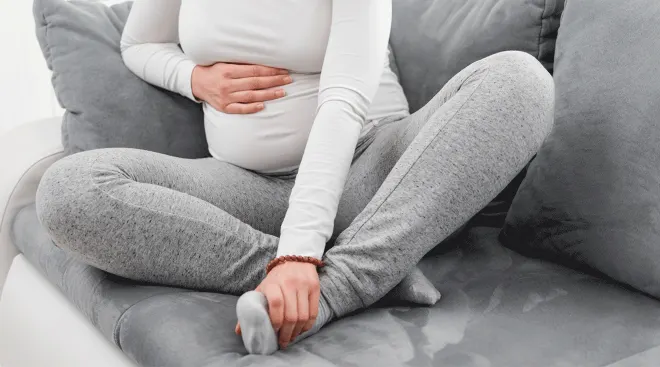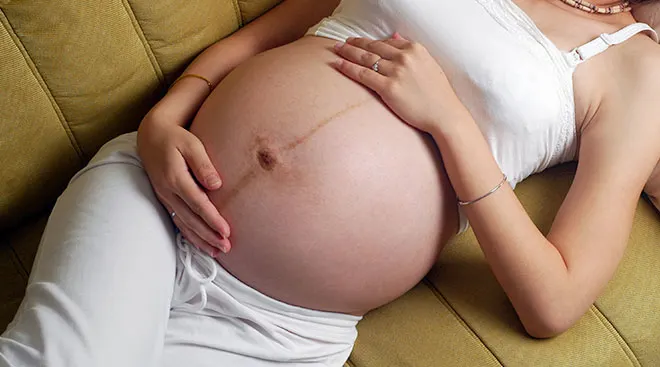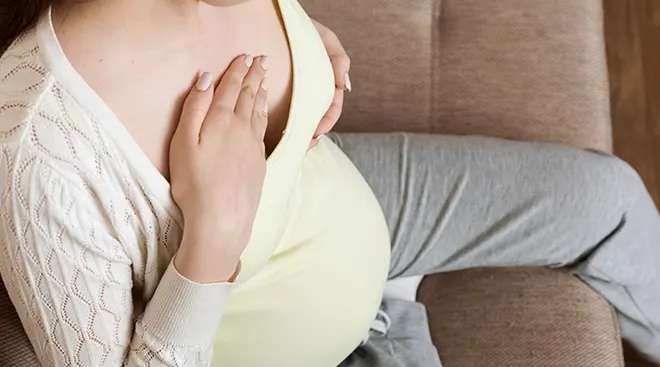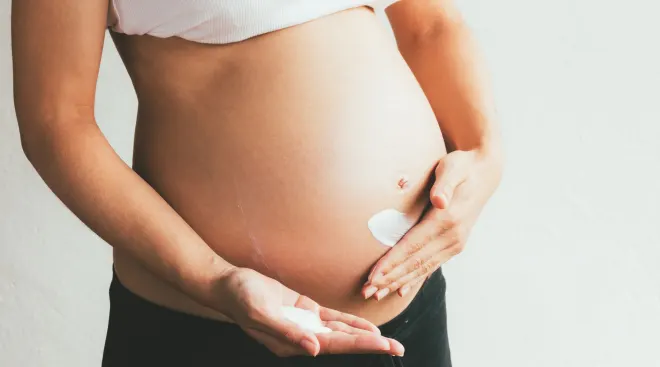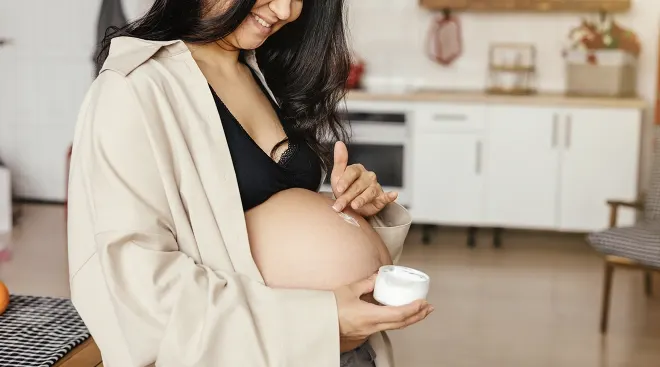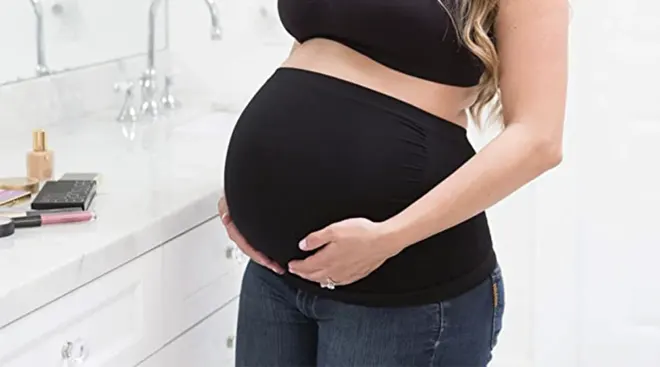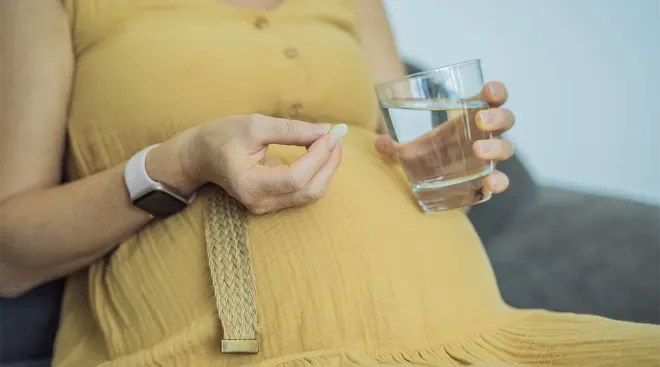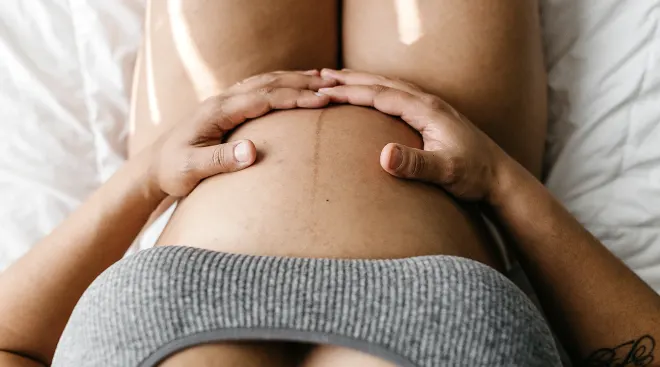When Does Implantation Occur?
Long before that telltale bump starts to show, your body goes through a series of cellular changes that set the stage for baby’s arrival. One of the first of these behind-the-scenes processes: Implantation. It’s a vital step that happens soon after an egg has been fertilized. But when does implantation occur, what does it entail and are there implantation symptoms to look for? Here’s what you need to know.
Implantation is an important process that takes place in early pregnancy. In somewhat technical terms, this is when “the blastocyst—what the cells are called at this stage of pregnancy development—invades into the wall of the uterus,” says Julie Lamppa, APRN, CNM, a nurse-midwife at the Mayo Clinic in Rochester, Minnesota. Basically, the developing fetus is embedding itself into the uterus.
So we’ve covered what implantation is, but when does implantation happen, exactly? There are a few steps that take place in order to kickstart your pregnancy. First, fertilization occurs; this is when an egg and a sperm meet to form a single cell, according to the American College of Obstetricians and Gynecologists (ACOG). This takes place in your fallopian tube. From there, the cell divides into multiple cells and moves through your fallopian tube to the lining of your uterus. There, it implants and starts to grow.
The timeline for this can vary, but there are ways to estimate when implantation occurs by measuring against ovulation and perceived conception. Keep reading.
How long after ovulation does implantation occur?
Every woman’s cycle is a bit different, so it’s difficult to put an exact number of days on this process, and ranges will vary, says Michael Cackovic, MD, a maternal-fetal medicine specialist at the Ohio State University Wexner Medical Center. However, implantation usually happens sometime between 8 and 10 days after ovulation (release of a mature egg).
Of course, not every woman knows exactly when she’s ovulating. In a typical 28-day cycle, a woman would likely ovulate around day 14, per the Mayo Clinic. Many women don’t have regular cycles, though. To that end, you’ll want to be on alert for certain symptoms of ovulation, including changes in cervical mucus and increased discharge. Of course, you can also try taking an ovulation test for more definitive intel.
How long after conception does implantation occur?
Again, this can depend a bit. Lamppa says that the blastocyst usually implants in your uterine wall about 6 to 10 days after it’s been fertilized by sperm. There’s about a 12 to 24-hour window for fertilization to happen during ovulation. However, sperm can live in your body for up to five days before ovulation, so from sex to fertilization to implantation, it can take anywhere from 6 to 15 days total—give or take—depending on the timeline and your unique cycle.
How long does implantation take?
Once again, the exact time frame varies, says Lamppa. Suffice it to say there’s a lot happening that you won’t see or feel. But, generally speaking, implantation will take place over the course of several days, starting about six days after fertilization and continuing as the blastocyst burrows itself deeper and deeper into the uterine wall.
So what does implantation feel like? The answer is pretty subjective. In general, implantation symptoms can mimic what you’d experience with your period, Cackovic says. Those can include:
- Light bleeding or spotting
- Cramping
- Nausea
- Bloating
Implantation bleeding or discharge—if it happens at all—is more likely to occur first, Lamppa says. “It’ll typically be brownish-red in color and should not contain clots,” she says. “It may occur right around the time you think you may be getting your period, but then you don’t continue to bleed like a normal period.” The other symptoms usually don’t start until a few days after implantation has happened, when the levels of the pregnancy hormone hCG start to rise in your body, she says.
Keep in mind that not having any implantation symptoms doesn’t mean you’re not pregnant. “Most people actually do not have any specific signs [of implantation],” Cackovic says.
In general, “discomfort from implantation should be very minimal, with no intervention needed,” Lamppa says. But if you’re feeling a bit of cramping or implantation pain, you can use a warm compress on your pelvis, says Christine Greves, MD, an ob-gyn at the Winnie Palmer Hospital for Women & Babies in Orlando, Florida. If you’re having more intense pain that doesn’t seem normal, call your doctor for guidance. It could be something else.
It’s tempting to want to take a pregnancy test ASAP when you suspect you might be pregnant. But Greves explains that suspected implantation shouldn’t be your cue to take a test. While some pregnancy tests claim they can detect positive results six days before your missed period, waiting until after your anticipated period is your best bet. “This will give you the accuracy you’re looking for without questioning faint lines or wasting tests that show negative results,” Lamppa says.
After implantation, the blastocyst grows and hCG levels will start to rise. Lamppa says that “the complex cellular changes of early pregnancy continue.” Nine weeks after fertilization, the embryo officially becomes a fetus, according to ACOG.
While implantation can go seamlessly, there are some possible complications that can happen:
-
Late implantation. When implantation happens more than 12 days or so after ovulation, it’s considered late. Lamppa says this has been linked to early pregnancy loss.
-
Ectopic pregnancy. An ectopic pregnancy happens when a fertilized egg implants and grows outside the main cavity of the uterus. Lamppa explains that ectopic pregnancies most commonly occur in the fallopian tubes but can also occur in the ovary, prior cesarean scars or the cervix. What’s more, she says this type of pregnancy is never sustainable and can even be life-threatening without timely attention and care.
When it comes to the complex cellular and physiological changes that will happen during pregnancy, fertilization and implantation are just the beginning. If you’ve been trying to conceive and are hyper-aware of what’s happening in your body, you might notice some implantation symptoms. And if you feel nothing? No worries; it’s still very much a possibility. The only way to know if implantation has occurred—aka you’re pregnant!—is to test in a few days once you miss your period. There’s a lot happening inside that wondrous body of yours; try to not stress.
Please note: The Bump and the materials and information it contains are not intended to, and do not constitute, medical or other health advice or diagnosis and should not be used as such. You should always consult with a qualified physician or health professional about your specific circumstances.
Plus, more from The Bump:
Michael Cackovic, MD, is an ob-gyn and maternal-fetal medicine specialist at The Ohio State University Wexner Medical Center. He received his medical degree at the MCP Hahnemann University College of Medicine.
Christine Greves, MD, FACOG, is an ob-gyn at the Winnie Palmer Hospital for Women & Babies in Orlando, Florida. She received her medical degree from the University of South Florida College of Medicine.
Julie Lamppa, APRN, CNM, is a nurse-midwife at the Mayo Clinic in Rochester, Minnesota, and author of Obstetricks(https://www.amazon.com/exec/obidos/ASIN/189300564X?&linkCode=ll1&tag=tb-when-does-implantation-occur-20&linkId=54d89726590deb77f5c18209a4026173&language=en_US&ref=asli_ss_tl).
The American College of Obstetricians and Gynecologists, How Your Fetus Grows During Pregnancy, December 2021
Mayo Clinic, What Ovulation Signs Can I Look Out For if I'm Trying to Conceive?, December 2022
American Pregnancy Association, Fertility Window Calculator
The New England Journal of Medicine, Time of Implantation of the Conceptus and Loss of Pregnancy, June 1999
Cleveland Clinic, Conception, September 2022
Learn how we ensure the accuracy of our content through our editorial and medical review process.
Navigate forward to interact with the calendar and select a date. Press the question mark key to get the keyboard shortcuts for changing dates.
































